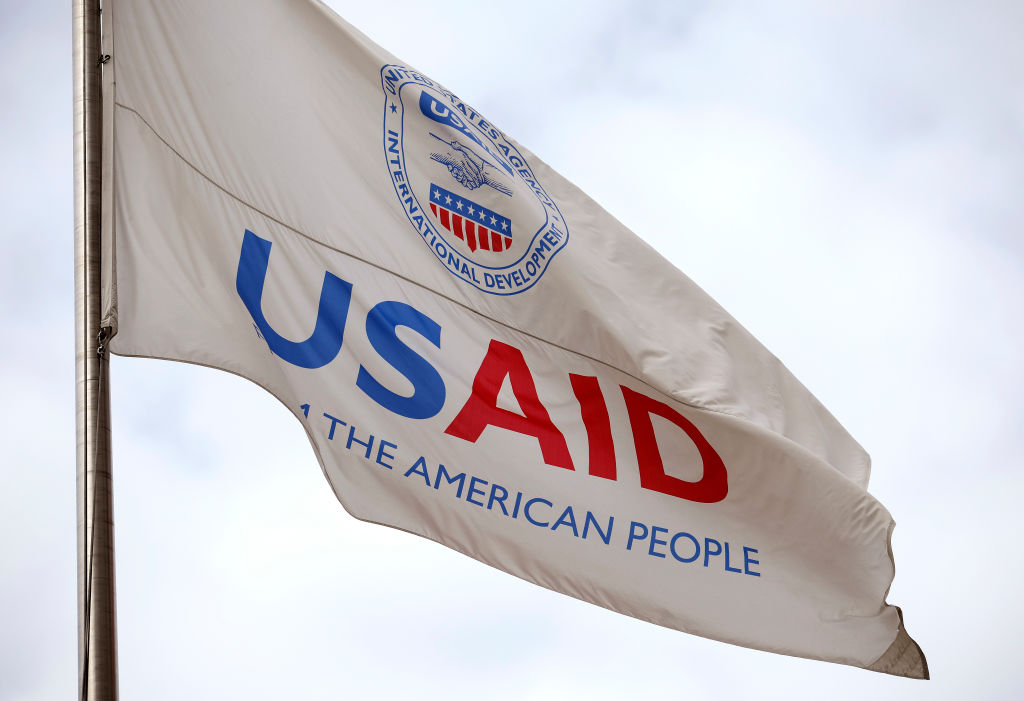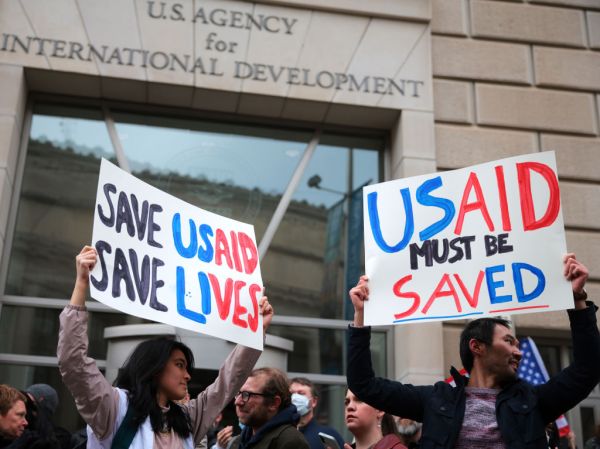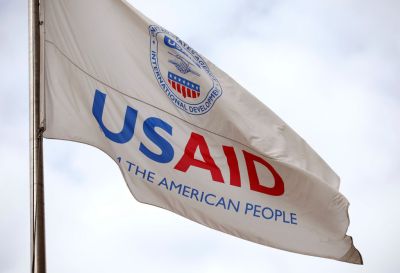The Trump administration has frozen billions of dollars in humanitarian assistance as it looks to curb unnecessary federal spending across the government. At the U.S. Agency for International Development (USAID)—the primary U.S. agency responsible for providing humanitarian assistance abroad—hundreds of staff have been placed on administrative leave as the White House considers shuttering the agency’s operations entirely. With USAID in the national headlines, a viral post is now claiming that Politico LLC, the company that publishes Politico and several other publications, received substantial funds from the agency. “Fun Fact: @Politico received USAID funds. Everything makes sense now,” Kyle Becker, a former Fox News producer, wrote on X.
The post, which had been viewed more than 2 million times as of midday Wednesday, includes a screenshot showing that Politico LLC received $8.1 million from the agency. In a follow-up post, Becker linked USAID funding freezes to a payroll issue at the company earlier this week. “The ‘technical error’ was reportedly resolved,” Becker wrote, referencing an email sent to Politico employees explaining that the issue had been caused by a system glitch. “The error of sending U.S. taxpayer money to a biased, partisan, establishment publication, however, is being fixed.”
The claim was picked up by right-wing political commentator Benny Johnson, who called the news “the biggest scandal in news media history” in an X post with more than 3 million views. “No employee at Politico got paid yesterday. First time ever the company missed a pay period. This is a crisis,” Johnson wrote. “Now we learn Politico — a ‘news company’ — which spent the last 10 years trying to destroy the MAGA Movement was being massively funded by USAID.
Becker and Johnson’s claims are false. The only payments received by Politico LLC from USAID were for two subscriptions to E&E—an energy and environment publication it produces—totaling $44,000 over two years.
According to USAspending.gov, an official source for U.S. government expenditure data—and the resource used by Becker in his post—Politico received $8.2 million in total payments in the previous 12 months. However, payments from USAID are a small fraction of that total. Of the two payments from the agency, only one was in that timeframe.
In September 2023, a staff assistant for the Center for Environment, Energy, and Infrastructure—part of USAID’s Bureau for Development, Democracy, and Innovation—purchased a subscription to E&E for $20,000. According to E&E, prices for its professional subscription packages typically start in the upper four-figure range and vary based on how many users have access to a subscription. Another subscription to E&E was purchased in September 2024 for $24,000 by the Center for Climate Positive Development—an office within USAID’s Bureau for Resilience and Food Security.
Funds received by Politico LLC from other government agencies also came mostly from subscriptions to E&E, or for the company’s policy intelligence platform, Politico Pro. The largest spenders have been the Department of Health and Human Services (HHS), Department of the Interior (DOI), and Department of Energy (DOE).
In July 2020, for example, HHS paid $73,857 for a Politico Pro subscription licensed for 37 users. The department exercised options to extend the contract in 2021 and 2022, and eventually increased its subscription to 49 users in 2023 for $130,185. The DOI similarly purchased a subscription to E&E in September 2021 for $200,000, which it has been extending since. The DOE has also been extending a Politico Pro contract since June 2020 for a four-year total of more than $400,000.
Neither Politico nor Johnson returned a request for comment from The Dispatch Fact Check. Becker could not be immediately reached.
Corrections, February 6, 2025: The headline of this piece has been updated to more accurately describe the contents of the fact check. While Politico LLC did receive funds from USAID and other government agencies, the money was not for grants but payment for subscriptions to its publications. Also, the $8.2 million figure cited refers to payments in the 12 months leading up to February 2025, not dating back to 2016.
If you have a claim you would like to see us fact check, please send us an email at factcheck@thedispatch.com. If you would like to suggest a correction to this piece or any other Dispatch article, please email corrections@thedispatch.com.







Please note that we at The Dispatch hold ourselves, our work, and our commenters to a higher standard than other places on the internet. We welcome comments that foster genuine debate or discussion—including comments critical of us or our work—but responses that include ad hominem attacks on fellow Dispatch members or are intended to stoke fear and anger may be moderated.
With your membership, you only have the ability to comment on The Morning Dispatch articles. Consider upgrading to join the conversation everywhere.